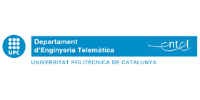The teaching methodology of the programme facilitates the student's learning and the achievement of the necessary competences.
The postgraduate sessions will be live online. In these the sessions, students will have the same opportunity for participation as in the face-to-face sessions. The session types in the programme are designed to facilitate the conciliation of the student’s work and personal life.
The programme makes available to students a series of technical resources for the good follow-up of the live online sessions. The platform used allows students to share their desktop screen with the teaching staff in order to resolve queries, carry out group work, etc. An instant messaging group will also be created for students and teachers, for responding to any questions or doubts that may arise.
The programme is designed with a high level of teaching quality to generate student involvement based on good planning, an appropriate pace, and close supervision throughout the programme by the academic management team and teaching staff.
Learning tools
A presentation of the conceptual foundations of the content to be taught, promoting interaction with the students to guide them in their learning of the different contents and the development of the established competences.
Practical classroom sessions
Knowledge is applied to a real or hypothetical environment, where specific aspects are identified and worked on to facilitate understanding, with the support from teaching staff.
Solutions are worked on by practising routines, applying formulas and algorithms, and procedures are followed for transforming the available information and interpreting the results.
The contents are prepared prior to the face-to-face lessons. Practical sessions take place in the classroom, which enable understanding and application of concepts to real cases and the expansion of knowledge with more technical and specialised details.
Students are given technical support in the preparation of the final project, according to their specialisation and the subject matter of the project.
Assessment criteria
At least 80% attendance of teaching hours is required.
The student's active contribution to the various activities offered by the teaching team is assessed.
Solving exercises, questionnaires or exams
Individual tests aimed at assessing the degree of learning and the acquisition of competences.
Completion and presentation of the final project
Individual or group projects in which the contents taught in the programme are applied. The project can be based on real cases and include the identification of a problem, the design of the solution, its implementation or a business plan. The project will be presented and defended in public.
Work placements & employment service
Students can access job offers in their field of specialisation on the My_Tech_Space virtual campus. Applications made from this site will be treated confidentially. Hundreds of offers of the UPC School of Professional & Executive Development
employment service appear annually. The offers range from formal contracts to work placement agreements.
Virtual campus
The students on this postgraduate course will have access to the My_ Tech_Space virtual campus - an effective platform for work and communication between the course's students, lecturers, directors and coordinators. My_Tech_Space provides the documentation for each training session before it starts, and enables students to work as a team, consult lecturers, check notes, etc.





